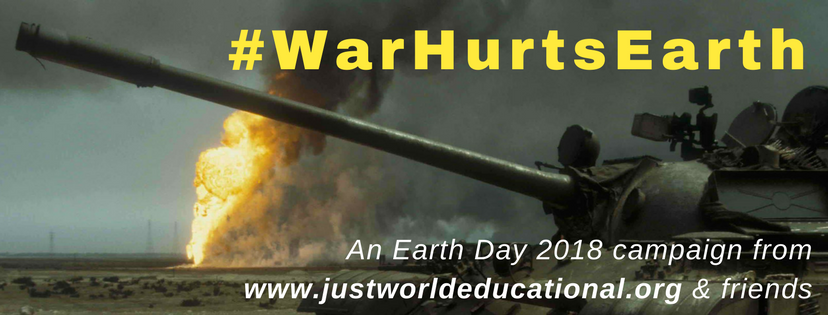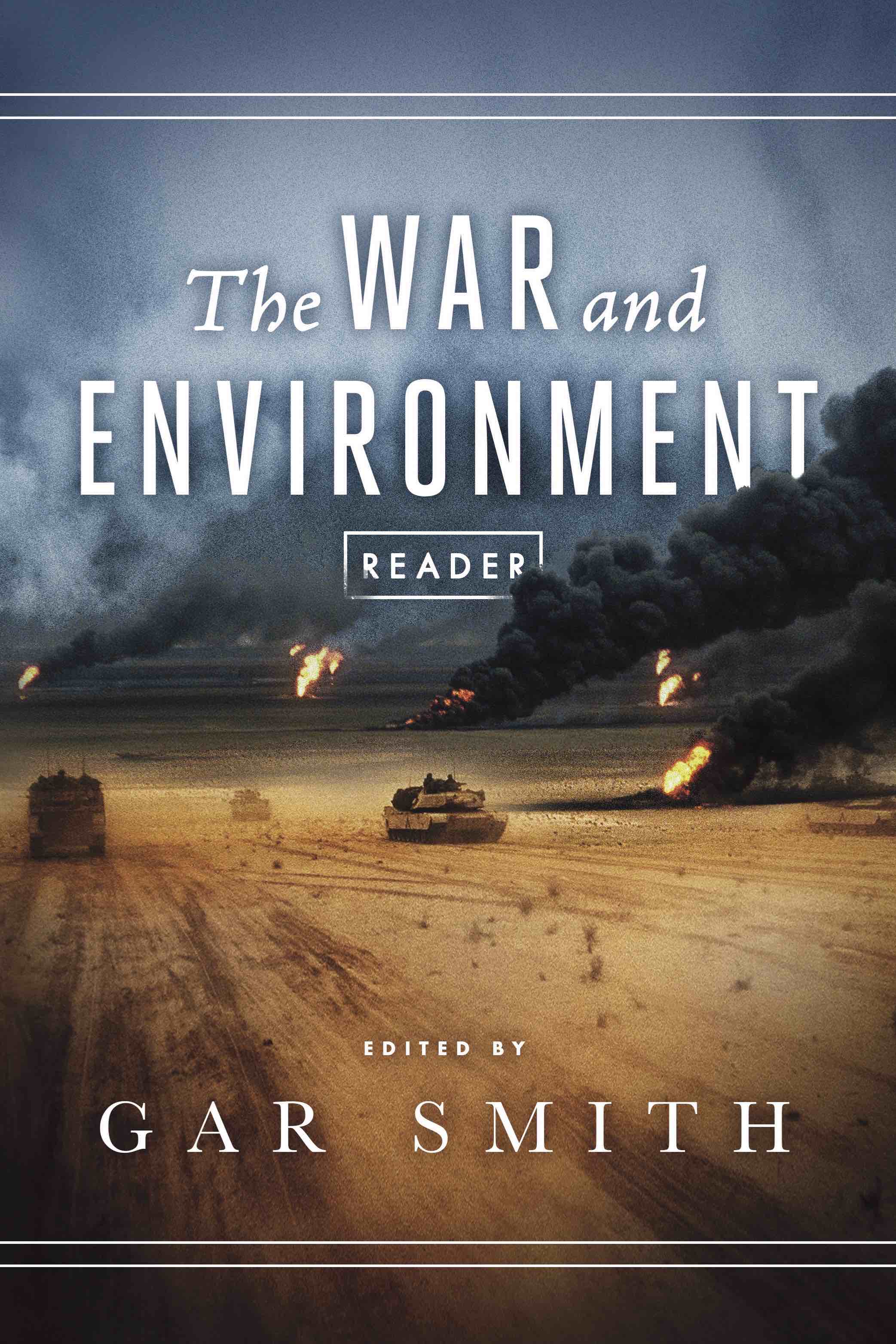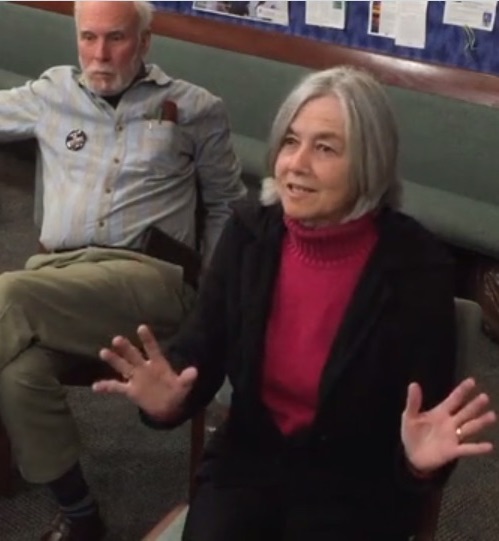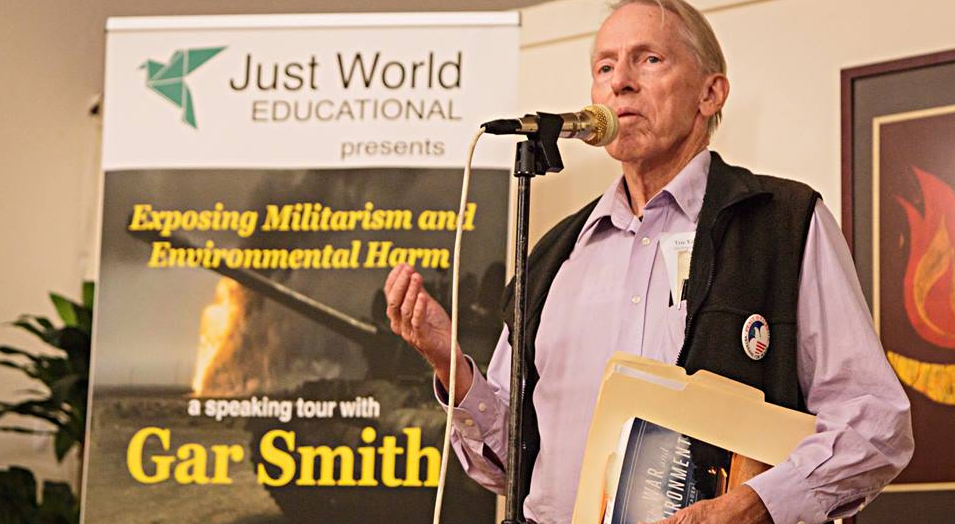West-coast activist Gar Smith (and his friends) have gotten Just World Ed’s “Exposing Militarism and Environmental Harm” speaker series off to a great start. Braving the wildfires of Northern California, they’ve now held six public forums in that region on this crucial issue.
Now, we’re laying plans with Smith to mount a campaign next Earth Day (April 22), to try to inject into as many Earth Day happenings as possible a keen awareness of the fact that–to pack it into our newly-minted hashtag– #WarHurtsEarth.
 (Anyone who’d like to work with us on this project– please let us know!)
(Anyone who’d like to work with us on this project– please let us know!)
Last week, Smith held the sixth of the forums in the current series at the Mt. Diablo Peace and Justice Center in Contra Costa County. We’re very grateful to Sergio Lub who expertly videotaped the whole event, including the lively discussion that followed Smith’s initial presentation. Lub’s video can be viewed here.
 Smith started his reading by sharing several excerpts from his recent anthology, The War and Environment Reader, which was published in October by Just World Books.
Smith started his reading by sharing several excerpts from his recent anthology, The War and Environment Reader, which was published in October by Just World Books.
The excerpts made for sobering listening. In one of them (which he paraphrased), Darlene Keju-Johnson, who had been born on Bikini Atoll, recalled the day in 1946 when a US Navy officer came to her island and explained to all the residents that they would have to be relocated because the military wanted to “test a bomb for the good of all mankind.”
As she wrote in the excerpt, “The Bikinians would never see their home again. Today, Bikini is off-limits for 30,000 years.”
The Bikinians were relocated to Rongerik Island. But in 1954, the US exploded a massive hydrogen bomb on Bikini– much of the fallout from which reached to Rongerik… and since then, as Keju-Johnson wrote, “we have this problem of what we call ‘jellyfish babies.’ These babies are born like jellyfish. They have no eyes. They have no heads…. They only live for a few hours and, when they die, they are buried right away.” (p.267.)
As is noted in the book, Keju-Johnson dies of breast cancer at 45. But Gar Smith is one of those who is keeping her testimony alive.

Haley Pedersen of Code Pink, speaking at an earlier “Exposing Militarism” event, in Berkeley.
Among the facts and figures he adduced in his presentation are the fact that 75% of the “Superfund” cleanup sites in the United States are from military waste, and that the Pentagon generates a shocking 5% of all global CO2 emissions. He noted that a B-52 bomber can burn 47,000 gallons of fuel on a single bombing mission, and that the Pentagon as a whole uses a million barrels of oil per day– “as much as Switzerland.”
He also noted that the Pentagon, with its 6,000 military installations all around the United States and another 5,000 in other countries, is exempt from the emissions regulations applied to all other forms of enterprise in the United States. The Paris Climate Agreement would, he said, have required removal of this exemption. He speculated that that added to the inclination of the military-industrial complex to support President Trump’s exit from the Paris Agreement.
“Our militarism has waged war on the biosphere for a long time,” he said. “But now, the environment is striking back.”

A participant in the Mount Diablo event
He referred to the high costs involved in dealing with the aftermath of the extreme weather events the United States has experienced thus far this year, concluding that climate change is a force far more destructive of human life than the global terrorism that has been identified as the major threat the U.S. military is now confronting.
After Smith’s talk, attendees engaged in a lively discussion of several related issues, including how these facts can be brought home to younger people.
There was some discussion of the reluctance of many activists and even leaders in the United States’s now-sizeable environmental movement to even start to consider the contribution that militarism makes to environmental damage. One participant said she had found that, despite all the current talk about “intersectionality”, there remain numerous other social movements in the United States, including the environmental movement, that seem reluctant to enter into alliances with the peace movement. (One notable exception to this, she said, seems to be the “Poor People’s Campaign” that has recently been revived by the Rev. William Barber.)
This participant also noted that next September, California Gov. Jerry Brown will be convening a “Climate Change Summit”, and that antiwar activists should continue to try to get their slice of the climate-threat problem onto the agenda there.
In his summary remarks, Smith noted that the contribution that war and militarism make to climate change is the “elephant in the room” that needs to be addressed. In a reference to the publicity that climate-change activists have given to the contribution of cow flatulence to global CO2 levels, he asked whether “War Farts”– that is the CO2 emissions from the military– could also become a thing.

